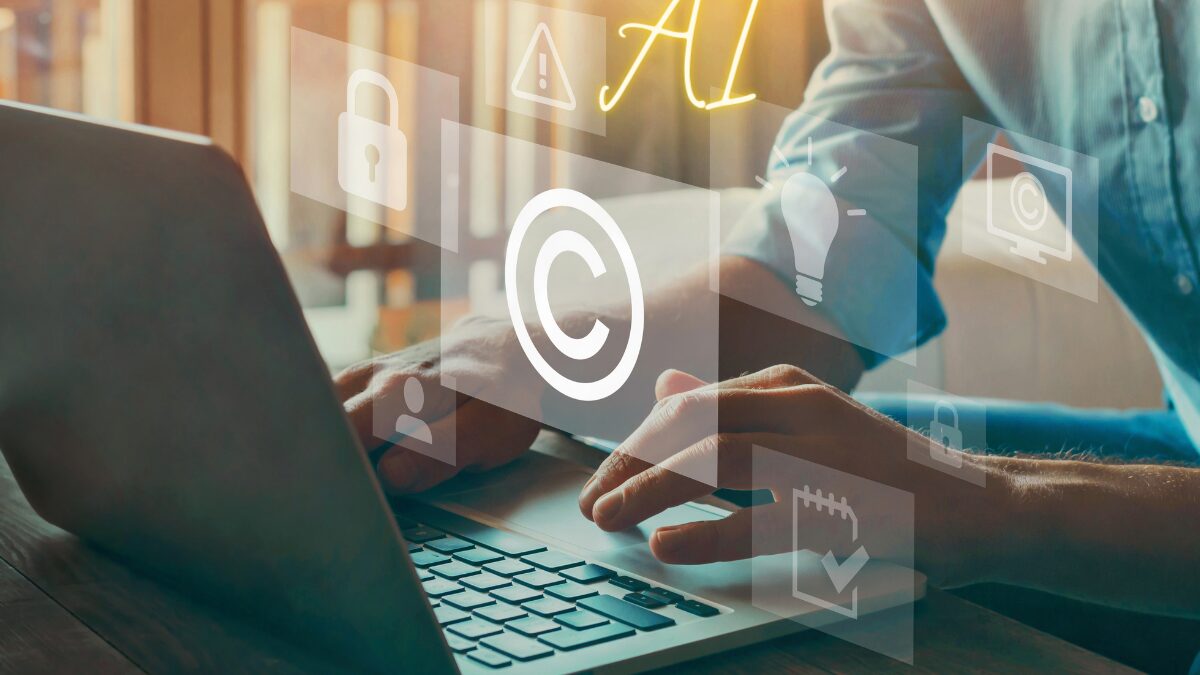Robots and copyright: What about artificial intelligence and intellectual property?

There’s already been a lot of discussion about the topic of intellectual property (IP) and artificial intelligence (AI). Still, it stays relevant to talk about it given the rise and integration of large language models (LLM) such as ChatGPT. Chat GPT for example is a chatbot that runs on AI and can very quickly write a text in response to a question. This raises several questions, especially in the context of copyright, but also about patents: Can copyright protected texts be used as input for the training of AI? Does the newly created output infringe the copyright of existing works? Will there be any copyright on AI created texts? Can AI be regarded as an inventor? These questions will be answered in the following text.
Can copyright protected texts be used as input for the training of AI?
For now, there are still a lot of uncertainties, but the newly approved AI act tries to shed some light. This AI-act states that machine learning, which is a way to train AI, is considered to be regarded as ‘text and datamining’. And text and datamining is an allowed exemption on copyright. Important to point out is that this is allowed with regards to ‘lawfully accessible works’ and as long as the use of the works has not been ‘expressly reserved by their rightholders in an appropriate manner’.
Unfortunately, it is not (yet) clear when the above requirements are met, so different cases before courts will need to create context here. In the future we will get clarity if and how copyright protected works can be used for the training of AI. For now, mainly U.S. cases are pending about this topic and it is worth to be on the lookout for the results here, even though the US copyright has a different approach then the EU one. The US cases will probably give some guidance for these questions in the EU.
Does the newly created output infringe the copyright of existing works?
Since the texts of for example large language models are new texts, although based on existing texts, and not pure copies, this rule seems not to be violated. But here again it may not be that simple. Firstly, it is definitely possible that the texts are very alike, and in some cases an infringement is possible. Furthermore, a large language model (like Chat GPT) rarely, if ever, includes source citations. This makes it difficult to verify what the newly created text is based on and/or whether certain pieces of text were copied verbatim. So it will depend strongly on the facts of the case, and this is already subject of discussion and even litigation, so a very interesting matter to keep an eye on.
Will there be any copyright on AI created texts?
Copyright will be applicable when certain criteria are met, as you can read in our smart guide. One of the criteria is the ‘originality’ requirement. To meet this originality requirement, human creativity is required. This originality requirement implies that the personality of the creator is in the work. So, in principle the rule will be: no human creativity means no copyright. This means that AI itself cannot get copyright. There are different other reasons AI cannot claim copyright, for example because AI can per definition not meet the originality requirement, AI cannot enforce it rights, … Whether this will change in the future is anyone's guess. In any case, it is clear that our legal system is not yet fully ready for it.
The interesting thing with AI, however, is that there often will be some human involvement: the instructions given to the machine in advance, the possible editing of the work afterwards,… So, the next relevant question is: will this involvement be sufficient and sufficiently creative to have copyright? This question has been answered in several cases outside the EU (with different approaches to the problem) but not yet in the EU. Several US cases rejected copyright for images produced with AI because of the lack of human creativity despite extensive human instruction and choice of images. So, at this point it stays difficult to predict what will be the approach in the EU. But specific prompts or results made with the help of AI which are the result of mainly a creative process of a person may be protected. Again, the facts of the case are very important.
In short, when the human input is insignificant, copyright cannot be granted to the human and nor to an AI in our current system.
So, can I, as a user, just copy the texts without citing the AI large language model as a source?
No, again, you can't do that right now. AI language models indeed do not have copyright on the texts created, but these models were also developed by people. And they have set up general terms and conditions. With Chat GPT, for example, the output may be used for various purposes, including commercial, but there are also various exceptions and conditions. So, if you copy the output of a large language model, you have to refer to it in different cases. Important is also the transparency about the use of AI.
Can AI be regarded as an inventor?
At this point the answer will be no, since generally speaking only a human can be an inventor. This has also been confirmed in the UK. Many scholars invested in research on this topic and concluded that algorithms are human developments, using metadata and deep learning technologies. On the other hand, patent law has to be carefully interpreted and keep the progress of these technologies in mind. AI is a quick evolving technological, social and cultural topic wherein the different IP tools play an important role.